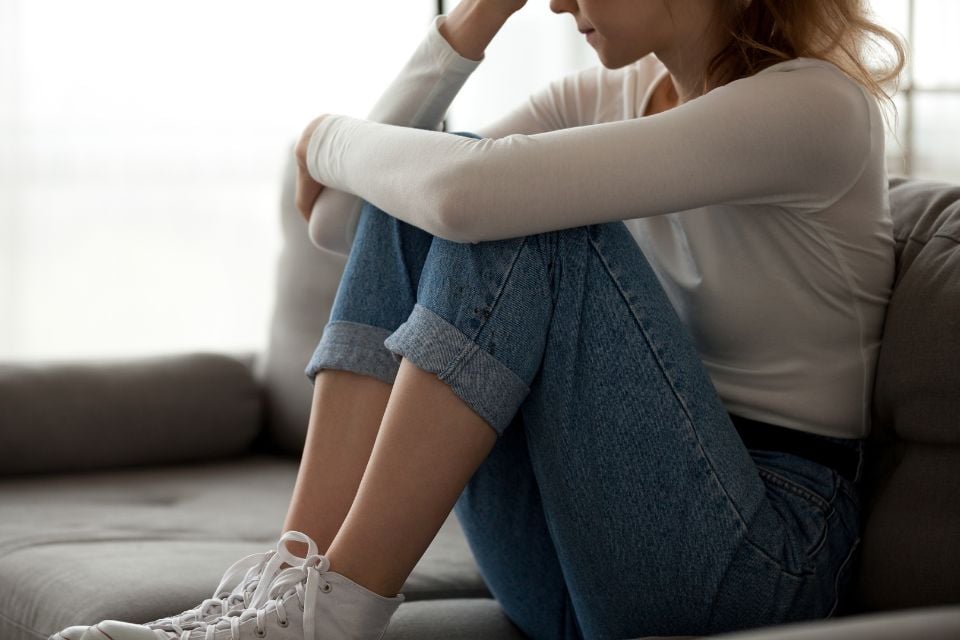Ayurveda and Anxiety: Ancient Wisdom for a Peaceful Mind

You should be aware of the powerful connection between Ayurveda and anxiety treatment. Ayurveda is a Sanskrit word that translates to “perfect knowledge” or “science of life.” It is one of the world’s oldest holistic healing systems, rooted in the ancient Indian tradition. More than a medical system, Ayurveda is a way of life that emphasizes balance between the body, mind and spirit. It incorporates personalized approaches using diet, mindfulness, yoga, and herbal remedies to help prevent illness and restore natural harmony. Ayurveda has been used for centuries to address mental health imbalances, including anxiety, by treating the root causes and not just the symptoms.
To gain the full benefits of Ayurvedic healing, the first step is to understand your dominant Dosha — your unique combination of life force energies. Ayurveda recognizes three primary doshas: Vata (air and space), Pitta (fire and water), and Kapha (earth and water). Each person has a unique constitution, and imbalance in one or more doshas can lead to physical or emotional discomfort. You can take our quick Dosha test here to discover your dominant energy and begin aligning your lifestyle accordingly.
Once your doshic profile is known, Ayurvedic treatments focus on pacifying the aggravated dosha to bring body and mind back into alignment. In the case of anxiety, this often involves calming excess Vata energy through lifestyle changes, nutritional support, and mind-body practices.
Astrology Tips in Your Inbox!
Sign up for astrology tips and exclusive updates.
Ayurveda and anxiety
What is Anxiety?
Anxiety is typically characterized by persistent worry, nervousness, restlessness or a sense of dread that is disproportionate to the actual situation. From an Ayurvedic perspective, anxiety is considered to be the result of an imbalance in the Vata dosha. Vata governs movement and communication in the body, and when excessive, it creates instability, fear, overthinking and insomnia. Ayurveda approaches anxiety by stabilizing Vata through grounding routines, warm and nourishing foods, and calming herbal support.
Ayurveda and Anxiety Treatment
Herbal supplements
Herbs play a central role in Ayurvedic healing, especially when it comes to calming the nervous system. Chamomile, widely known for its relaxing properties, is often consumed as tea to soothe anxiety and promote better sleep. Another powerful herb is Kava, which has shown effectiveness in clinical trials for reducing mild to moderate anxiety without sedative side effects. Other traditional Ayurvedic herbs such as Ashwagandha, Brahmi, and Jatamansi are frequently used to nourish the mind, reduce stress hormones and enhance emotional resilience.
Routine
Daily routine — or *dinacharya* — is a cornerstone of Ayurvedic practice, especially when addressing mental imbalances. A person with elevated Vata energy may experience a scattered mind, forgetfulness, or difficulty committing to tasks. Creating structure helps ground Vata, bringing a sense of stability and security. Simple habits like waking up and going to sleep at the same time every day, eating meals at regular intervals, and practicing daily rituals like oil massage or gentle stretching can have profound effects on reducing anxiety and promoting inner calm.
Yoga
Ayurveda and yoga are sister sciences, and when combined, they create a powerful system for healing the mind and body. For anxiety caused by excess Vata, slow and steady yoga practices are recommended. Focus on grounding postures such as forward bends, seated poses, and long-hold stretches. Styles like Yin Yoga, Restorative Yoga, or gentle Hatha are ideal. Deep breathing, extended savasana, and meditative movement help calm the nervous system and stabilize mental fluctuations. Avoid fast-paced styles like Vinyasa or Iyengar during periods of anxiety.
Ayurveda diet
Vata is dry, light, cool and irregular — and these qualities can be balanced with warm, moist, and grounding foods. Ayurveda recommends nourishing, cooked meals such as soups, stews, root vegetables, and grains prepared with ghee or healthy oils. Favor spices like cinnamon, ginger and cardamom to warm the digestive fire. Avoid raw, cold, dry or frozen foods, as well as stimulants like coffee and alcohol, which aggravate Vata. Dairy can be beneficial if tolerated well, as it adds soothing and stabilizing properties. While heavier foods are preferred, it’s important to maintain portion control and avoid emotional eating.
Ayurveda offers a deep, intuitive framework to understand and treat anxiety by addressing the root energetic imbalances. Rather than masking symptoms, this ancient system empowers individuals to cultivate a lifestyle that supports long-term harmony, health and emotional well-being.
However, it’s essential to remember that Ayurveda is a complementary therapy. If you are struggling with ongoing mental health challenges, it is always best to seek support from a qualified healthcare provider. Professional guidance ensures that all aspects of your mental and emotional health are properly cared for.
You may also like:
- Benefits of Ayurveda: get to know them
- Benefits of acupuncture: what you need to know
- Two Mindfulness exercises you will want to try
- Mindfulness for kids: Why should children meditate?
- Complete breathing: How it can help you
- Mindfulness apps: The best apps to improve your concentration
- Mindful eating: How to do it properly
- Radiesthesy: everything you need to know
- Types of Yoga: cheat sheet
- Viniyoga: your first introduction to yoga as a form of therapy

